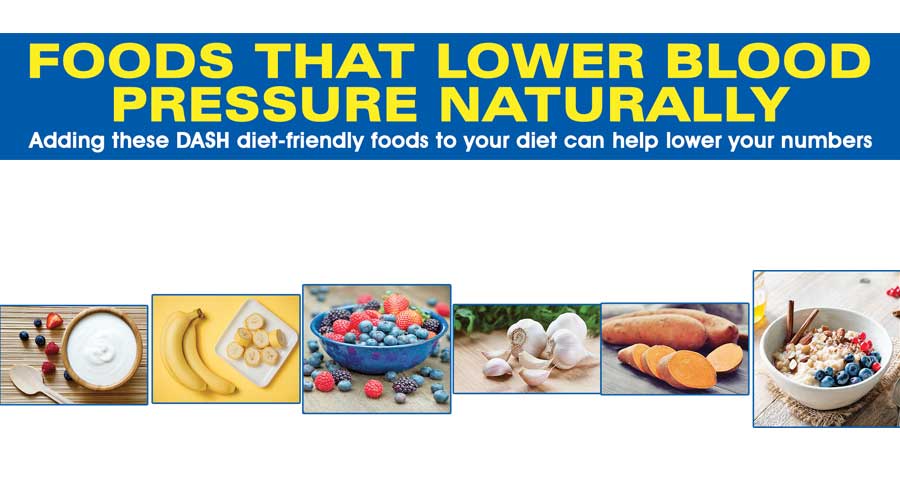Salt therapy – All you need to know
- 24 Feb - 01 Mar, 2024

When we think about trying to lower high blood pressure, we usually think of limiting salt and processed foods. But a heart healthy diet is more than just lowering your sodium intake. The DASH (Dietary Approaches to Stop Hypertension) diet, which is specifically designed to help manage blood pressure, emphasises eating many fruits, vegetables, low-fat dairy, and other fibre-rich foods.
The DASH diet is heart healthy and is rich in foods that have a high content of calcium, magnesium, potassium, protein, and fiber. These nutrients are essential to lowering blood pressure naturally. That said, incorporating these cardiologist-approved foods into your diet, along with taking prescribed medication and following a regular exercise routine, can help lower your blood pressure.
Low-fat dairy products are a great source of calcium, which is one of the main compounds that help fight high blood pressure. A 12-ounce serving of low-fat yogurt will give you about 30 per cent of the recommended amount of calcium for the day.
Bananas are rich in potassium, with one average-sized banana packing about 420 milligrams. That's about nine per cent of the recommended daily intake. Bananas are also rich in fiber and lend a natural sweetness to smoothies, baked goods, and frozen treats. Peel and freeze mushy bananas when they start to go bad.
Berries, but specifically blueberries, are packed with nitric oxide, a gas that helps increase blood flow, thus lowering blood pressure. A March 2015 study by the Academy of Nutrition and Dietetics found that even less than an ounce of blueberries a day can help significantly lower blood pressure.
Leafy greens that include kale, spinach, collard greens, arugula, Swiss chard, beet greens, and romaine lettuce are excellent sources of potassium. Think outside of the salad and glorify your greens in omelets, smoothies, and sandwiches.
According to the National Institute of Health (NIH), the compound allicin in garlic may be able to help reduce blood pressure. Allicin is released when garlic is crushed or chopped. However, doctors don't recommend using garlic supplements since there is limited research on their effectiveness for hypertension.
Potassium- and magnesium-rich sweet potatoes are an essential part of following a blood pressure-reducing diet. Sweet potatoes are also high in fiber which is good for your heart, too.
High-fiber whole grains, especially oatmeal, have been linked to lowering the risk of cardiovascular disease. Studies have shown that just three servings of whole grains a day can decrease your risk of heart disease by 15 per cent. Oatmeal for breakfast is a great way to start your day with whole grains. Add whole-wheat bread at lunch and quinoa, barley, or brown rice at dinner.
Peaches and nectarines are like fruit cousins that share a lot of similar benefits, one of which is their high potassium content. A large peach or nectarine provides about 10 per cent of a person’s daily recommended value. The potassium helps balance water levels in the body and helps us get rid of excess sodium.
Good news for all chocolate lovers: According to a May 2017 study in Heart, flavonol-rich dark chocolate has been linked to a lowered risk of cardiovascular disease. The study found that the flavonols in dark chocolate helped promote healthy blood vessel function.
Pistachios have been proven to lower blood pressure by reducing blood vessel tightening and heart rate.
Olive oil may be high in calories, but it has many health benefits. Using polyphenol-rich olive oil has been linked to lowering blood pressure – especially among women. Make olive oil your go-to oil when cooking.
It’s not always easy to eat a pomegranate, especially since they’re so hard to peel, but pomegranate juice is easy to drink and will give you the same benefits. A September 2012 study in Plant Foods for Human Nutrition suggests that the high antioxidant levels in pomegranate juice can help lower blood pressure.
Pumpkin seeds are rich in blood pressure-lowering magnesium and zinc. Pumpkin seed oil is also a good way to get the seeds’ benefits. Be warned: Store-bought pumpkin seeds are usually coated in salt, so choose the unsalted varieties or roast your own by baking them in a sheet pan for 20 minutes at 350 degrees.
COMMENTS